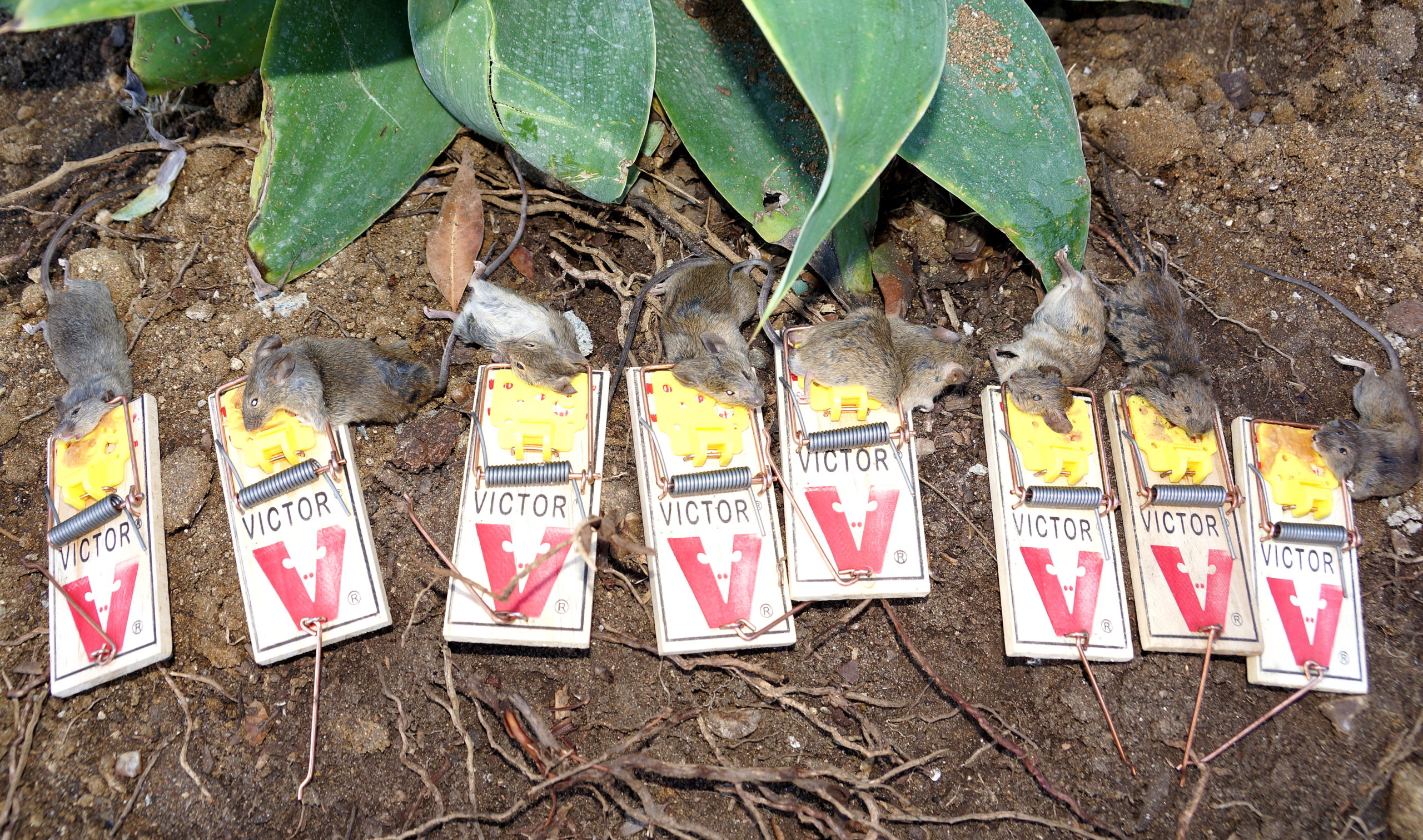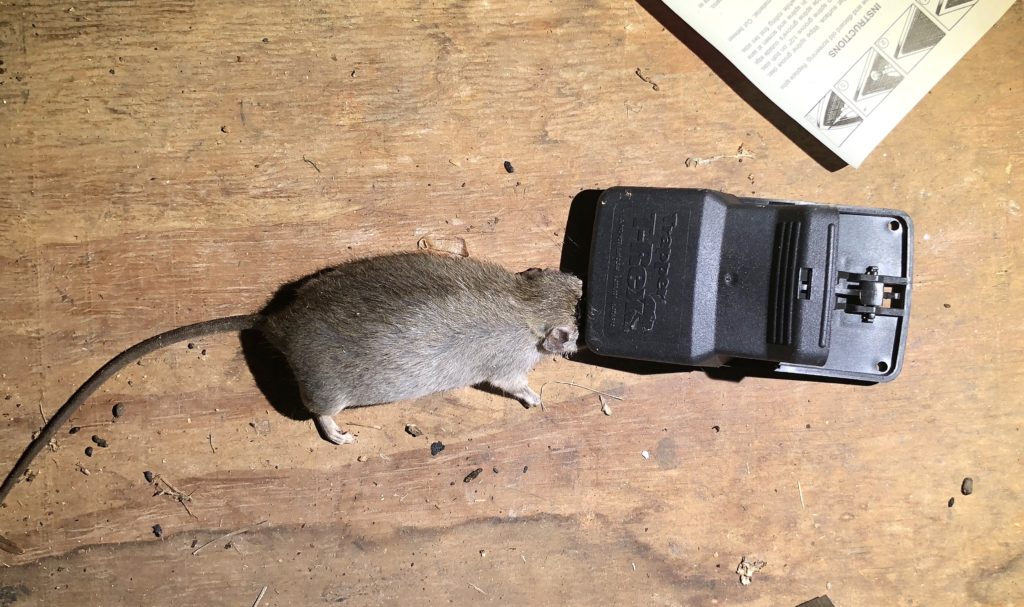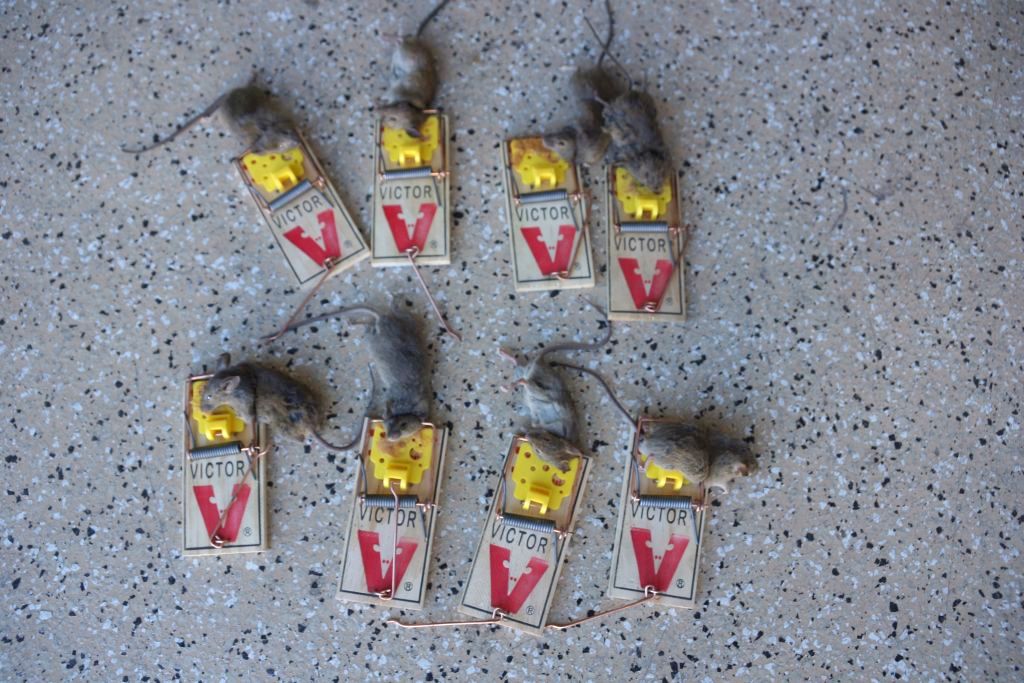Mice And Rat Removal
It is recommended that you call 413-454-2711 for rat removal when you see a rat in your Springfield home. The common rat carries a number of dangerous diseases and other pests. Even if you have no direct contact with any rats. Their droppings can be even more dangerous than their bite. They usually enter for warmth and shelter, but also for food. Once inside, they make a lot of scurrying and scratching noises. They will chew on wires, defecate and urinate everywhere, and often enter the home and raid the pantry. They are nocturnal, and amazingly fast and agile.
If you are hearing scratching noises in your attic or walls call us anywhere in Hampden County. If you see a rat in your home, call us. Rats breed very quickly and they need to be removed from your home before you have an infestation.
A rat infestation can lead to severe damage to your home as well as an increased risk of disease. Rats will take advantage of any home and can go seemingly unnoticed for quite some time in the attic or wall spaces.
Mice and Rat Exterminator
Our team are trained rat and mice exterminators in Springfield. We will set the traps to capture the rats that are in your home. We understand the behavior of these animals and know the best traps and where to place them. There are many DIY options out there, but you shouldn’t put yourself or home at risk. These rodents are covered in fleas that are full of terrible diseases that can be life threatening. Rats often damage and contaminate food products as well. Let us help you with an extermination and exclusion plan.
Extermination is the best way to deal with a rat problem in your home. Let us handle the problem for you. We have the training to safely rid your home of rats.
Rat Damage Repair
After we seal up the entry points so that the rats can no longer get into your home, we will safely clean up the mess. Rat droppings, dead rats, contaminated insulation and drywall that is left behind can be hazardous to you and your family. We will safely clean what they have left behind and repair the damage that they may have caused.
These rodents can chew through wires and venting causing permanent damage to your property. Frayed and gnawed wires can be a fire hazard if left unrepaired. Laying traps and repairing damage can significantly reduce the likelihood of future rat problems.
The health hazard of rats doesn’t end in the home. Rats and the disease they carry is a danger to businesses as well. Rat control options are available for both commercial and residential customers. Don’t let these pests from hurting your employees and patrons, consult with professional rat removal specialist to create a plan to protect your business.
 Humane Rodent (Rats and Mice) Removal Process
Humane Rodent (Rats and Mice) Removal Process
Rats and mice are common visitors in human dwellings. They live among us, survive on us, and ultimately die by us. These rodents are often not noticed until their population grows and we begin to see their handiwork in our houses.
Rats and mice are carriers of many diseases which they spread to humans by contaminating our food and our environment through their waste as well as their feeding activities. They chew up papers, clothes, wood, pipes, wires, food bags, and more.
The best way to get rid of them is to prevent them from getting into your homes in the first place by:
- Keeping a clean environment and home. They can survive on crumbs, so make sure your house is spotless.
- Sealing your garbage in tight-fitting bins to block their access to leftovers.
- Keeping your outdoor grills clean and picking up any food litter.
- Not growing ivy on your walls, as rodents can climb on them to get into your windows, roofs, vents, or any other openings along your wall.
- Storing your food in containers. Avoid bags that can be chewed through.
- Removing leftover pet food from bowls at night.
- Sealing all holes in your house, repairing broken vents, and leaky pipes.
- Cutting your grass regularly.
But what if they are already in my house?
Hey, don’t fear, there are many ways to get rid of them. At Nuisance Wildlife Pros, we can get them out of your house for good.
Removing Rodents in A Humane Manner
Live Traps
With live traps, the rats and mice are lured into a cage and are unable to break free. They are then transported and released in another location not more than 100 yards from your house. This method though seemingly less harmful puts the rodents in danger as there is no guarantee they will survive in unfamiliar territories. In addition to that, you could be separating their young, who are dependent and will ultimately die.
Spring trap
This is thought to be the most humane method because it kills the rodent instantly. All other methods will kill the rodents, but take longer, and in a more painful manner. You should regularly check the trap for the rare case where it doesn’t kill the animal but wounds it.
Cats
A natural way to get rid of rodents is to adopt a cat and let life play out. Cats hunt rodents, effectively serving as a deterrent for rodents. Their presence helps scare the rodents out of your house.
Do-It-Yourself Trap
A type of easily constructed home-made trap involves using a makeshift pipe, a bucket of water, and bait. The bait is placed at the edge of the make-shift pipe, which hangs over the bucket of water. Once the rat scurries to the bait, its weight tips the pipe over and it falls into the bucket. This method drowns the rat, which may not be considered humane, but is less inhumane than glue traps or poison.
Glue Trap
This is a type of trap that glues the rat to one spot. The rat remains stuck on the trap and eventually dies of starvation or dehydration. The trap is then disposed of with the rat still attached to it.
Poison
This is considered to be the most inhumane method of removing rodents. Poisoning a rodent will slowly kill it over days to weeks, with the rodent in severe pain throughout.
However, traps won’t stop rodents from infesting your house, but a proper house inspection and preventive measures put in place by professional wildlife agencies will keep your house rodent-free for years. What are you waiting for? Give Nuisance Wildlife Pros a call today!
How to Keep Rats and Mice Out of The Basement
Do you have rats and mice in your basement? Then you need no introduction to their destructive capabilities. From chewing load-bearing wood to gnawing on electrical wires, rodents can wreak several damages in the basement. They also leave lots of waste that pollute the area and pose health risks to humans and pets.
But first, why are rodents attracted to your basement?
Basements are great hiding spots for several reasons. Some of which include:
- It provides them with warmth, especially during fall and winter.
- Since humans rarely venture into the basement, it provides them with a place to roam freely without the fear of being caught.
- It also provides safety from other wild predators.
- Living in proximity to humans means easy access to food.
With all these benefits, it’s not rocket science that rodents will find their way into your basement if given a chance.
But the pressing question remains: how can you keep them out for good? Nuisance Wildlife Pros has helped thousands of clients handle rodent infestation problems over two decades. In this post, we share some of the most effective hacks we’ve discovered for keeping rats and mice out of the basement.
- Seal all entry holes
This is arguably the most important thing you need to do to keep rats and mice away. Thoroughly inspect your basement to identify potential entry holes. Rodents can elongate their body, making it possible for them to pass through tiny holes. A mouse, for instance, can squeeze through a hole the diameter of a pen.
Once you’ve located all such holes, seal them off with caulk or steel wool. Avoid using materials (like paper and wood) that rodents can easily chew through.
- Trap them
If you have a large rodent population in your basement, trapping is the best way to reduce their population. Snap traps are preferred because they are humane. Other types of rodent traps include electric traps, glue traps, and live traps.
- Eliminate easy access to food and water in your yard
More often than not, rats and mice are first attracted to the property for easy food. After exploring your yard, they find their way into your basement through entry holes. That’s why eliminating easy access to food in your yard will make your property unattractive. Some of the tips to bear in mind include:
- Ensure you secure your trash cans properly, especially at night.
- Take pet food inside, especially at night.
- Sweep away bird seeds from under your bird feeder
- Eradicate stagnant water in your yard.
- Ensure fruits and vegetables in your garden are well protected.
- Fix leaky pipes around your house
- Eliminate hiding spots
Sometimes, rats and mice first build their nest in the yard before moving into the basement. That’s why eliminating hiding spots from your yard in the first place can be effective. Some of the things to bear in mind include:
- Throw away abandoned machinery and objects in your yard.
- Ensure you trim off tall shrubs and overgrown trees.
- Try repellents
Essential oils are some of the best natural rodent repellents. Since rats and mice have a great sense of smell, the pungent odor from peppermint oil, pine oil, and other essential oils can be offensive to them. Cloves, cayenne pepper, and mothballs may also keep them away.
However, note that without eliminating attractants (like food and hiding spots), rats and mice will put up with the discomfort caused by repellents. What’s more, repellents need to be continuously applied to remain effective.
Do you need help getting rid of nuisance rodents in your basement? Or do you need help implementing an effective plan to keep them out for good?
Contact us today at Nuisance Wildlife Pros to promptly and effectively resolve your rodent infestation issues.

How To Get Rats Out of Attic
Once rats invade your Attic, you will know. From; visible and scattered droppings, to the skittering sounds at the sense of noise, or squeals at night while foraging.
No matter what irks you the most about the presence of these rodents, it is well worth it.
Rats cause a lot of discomfort and destruction to humans. Since they feed on anything, a prolonged invasion in your Attic could spell severe structural damage and pest transmission.
Why do Rats invade the Attic?
Rats will most likely enter anywhere in your home as long as it affords them;
- Privacy: They love to stay in dark and damp places to be able to hide and breed their young ones.
- Access to food and water: Rats love a place that can provide them a great map and route to access food, water, and any other nutrient easily
- Space to run around: rats try as much as possible to limit direct interaction with humans and out of reach of other predators (sworn enemies)
If rats ever get into your Attic, know that trouble is not far away, and there are limited things you can do by yourself. The most effective method at this point will be to contact professional removal services.
- Traps and Baits
Traps are the most effective ways to rid your Attic of rats, especially where you put enticing baits. Some bait to put in your traps include grain, cereal, breadcrumbs, pieces of fish, and so on. We strongly advise people to use humane traps due to;
The smell of a dead rat (where the trap is successful) can fill the entire building with an irritating odor.
The local laws may frown at inhumane methods of dealing with animals.
- Natural repellents
Like much other wildlife, Rats are repulsed by certain tastes or smells. These substances can be sprinkled around the Attic areas where the Rats have invaded. Some of these substances can be purchased in a wildlife store, and others can be made in simple DIY methods.
These include substances like;
- Cayenne pepper,
- Peppermint Oil,
- Black pepper,
- Cloves
- Crushed pepper.
While these deterrents may hold them off for a while, it is not a permanent solution. Rats are known to adapt to extreme conditions and survive.
- Constant inspection of the Attic
Rats will scamper at the slight sound they sense. If they continually hear sounds and understand that the Attic is in use, they will abandon such an area. However, it is better to find their hideouts in the Attic and seal them up.
- Make the Attic uncomfortable for them (Rats)
Rats will continue to stay in the Attic as long as they can easily access food. If you keep your home free of all trash and leftovers, the area may become unbearable for the rats. However, rats will still engage in other materials for their nutrition.
Clear the attics of all books, papers, pet feeds, or other chewable material during your inspection.
Prevention of Rat invasion
It is more costly and troublesome to expel rats from your Attic than to prevent them from entering. When you can, adhere to all these steps to avoid rat invasion of your property;
- Trim branches reaching the Attic
Rats are good climbers, especially on walls and trees. Trim them if you have a branch overreaching and leaning into the attic/roof.
- Clear out the Attic
If your Attic is dusty and clustered with various components, it may be good for rats. These pests see such areas as a perfect place for their “nests.”
- Store foods properly
Leaving food in the open is a bad idea when trying to expel rats.


